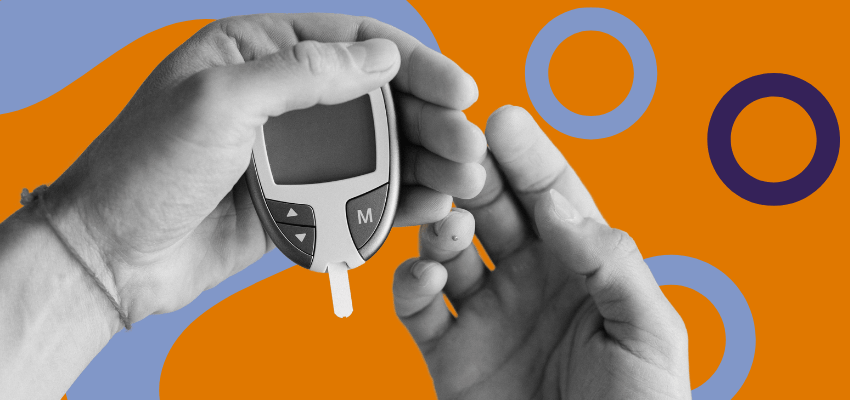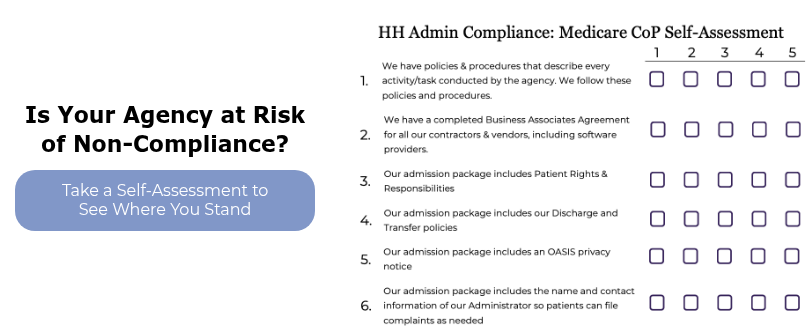Need a CLIA Certificate? Home Health & Hospice Agencies Must Know This
July 25th, 2025
5 min read
By Abigail Karl

If you’re running a home health or hospice agency, you’ve likely heard about the CLIA waiver—but what exactly is it, and why is it so important? The Clinical Laboratory Improvement Amendments (CLIA) waiver plays a crucial role in ensuring your agency can conduct certain tests that impact patient care. But many agencies struggle to fully understand its implications and requirements.
*This article was written in consultation with Mariam Treystman & Kelly McCarthy.
At The Home Health Consultant (THHC), we specialize in helping home health and hospice agencies navigate regulatory complexities like the CLIA waiver. With years of consulting experience in this field, we’re well-versed on the ins and outs of compliance and how it directly influences your ability to provide quality care.
In this article, we’ll break down:
what a CLIA waiver is, how it impacts your agency, and why it can be essential for delivering safe and effective patient care. By the end, you’ll have a clear understanding of the waiver and the steps your agency needs to take to stay compliant and elevate care standards.
What is a CLIA Certificate of Waiver?
A CLIA waiver is a certification that allows healthcare facilities to conduct waived laboratory tests—simple, low-risk tests that don’t require complex lab equipment or highly specialized personnel. These tests include, but are not limited to, procedures which can be performed quickly without sending samples to a lab, such as:
- blood glucose checks
- pregnancy tests
- COVID-19 tests
Click here for a list of all laboratory tests granted waived status under the CLIA waiver.
Even though these tests are considered simple, they still require oversight from a medical director and an approved CLIA waiver. Without this certification, home health agencies cannot legally interpret the results of these tests, even if the tests themselves can be conducted.
Why Do You Need a CLIA Waiver?

You don’t legally need a CLIA waiver to be able to operate your hospice or home health agency. However, it can be essential when it comes to providing quality patient care and performing routine treatments & procedures.
1. Compliance with Federal Regulations
To legally interpret test results from waived tests like blood sugar checks, your agency must have a CLIA waiver. This ensures compliance with federal regulations and protects your agency from potential legal risks or penalties.
Without a waiver, your nurses can administer tests, but they cannot interpret the results, which could lead to delays in patient care.
2. Improved Patient Care
Many home health and hospice patients, particularly diabetics, require frequent blood sugar monitoring. If your agency cannot legally interpret these results due to a lack of a CLIA waiver, it delays critical care decisions. This also prevents your agency from accepting referrals for patients who require blood sugar monitoring, making you less likely to receive referrals across the board.
Having a CLIA waiver enables your nurses to immediately interpret results and adhere to sliding scale orders, ensuring patients receive timely, accurate treatment.
3. Medical Oversight
A CLIA waiver also requires the presence of a CLIA-specific medical director. To become a CLIA Medical Director, the applicant must be an M.D., N.P., or D.O. (Doctor of Osteopathy).
The CLIA Medical Director oversees all waived tests conducted by your agency, ensuring proper interpretation and compliance with healthcare standards. The CLIA waiver provides an added layer of quality control, ensuring that even simple tests are conducted with the necessary oversight.
While your hospice or home health agency medical director can also be the CLIA-specific medical director, it’s important to note that these are separate titles with different responsibilities.
4. Operational Continuity
Agencies without a CLIA waiver cannot legally interpret test results, which can create operational bottlenecks. Patients or their caregivers would need to interpret the results themselves—an unreliable and impractical solution for many. You want to avoid this at all costs, as it defeats the entire purpose of in-home healthcare service.
With a CLIA waiver in place, your agency’s clinicians can directly manage and respond to test results, ensuring seamless patient care and reducing reliance on external parties.
How Do You Get a CLIA Certificate of Waiver for Home Health or Hospice?
To get a CLIA waiver for your agency, you’ll need to follow these steps:
- Find a CLIA Medical Director: To get a CLIA license, you need a medical director specifically in charge of CLIA. If you already have a Medical Director for your agency, they can double as the CLIA Medical Director
- Apply for a Lab License: Once you’ve found your CLIA Medical Director, you can apply for a lab license through your state's public health department. For example, in California, this is done through the California Department of Public Health (CDPH). Once issued, this license is valid for one year and will need to be renewed annually. In California, you can expect to pay around $120 for your lab license application.
- Get Centers for Medicare and Medicaid Services (CMS) Approval: Once your lab license is approved, you’ll need to apply for a CMS waiver of testing. This requires submitting an application and paying a fee of around $280. Once approved, the waiver is valid for two years and will need to be renewed bi-annually.
- Approval: Once your application has been approved, you will receive an invoice in the mail from the Centers for Medicare and Medicaid Services (CMS). Once you pay the invoice, CMS will send your CLIA certificate.

The processing time for obtaining a CLIA waiver is actually fairly short right now, at least in the world of healthcare. As of the writing of this article, you can expect the process to take approximately six months.
What Happens If You Don’t Have a CLIA Certificate of Waiver?
Without a CLIA waiver, your agency cannot interpret test results of the laboratory tests covered under the CLIA waiver, which limits your ability to provide timely care. For example, in the case of diabetic patients, your nurses might be able to conduct blood sugar tests, but they wouldn’t be allowed to interpret the results and adjust treatment based on those findings. This could significantly impact the level of care your agency provides and delay crucial decisions for your patients’ health.
In some cases, patients or their caregivers might have to interpret the results themselves. While this can work for certain patients, it’s not a reliable or safe option for everyone, particularly those who require more frequent or complex care.
Does a CLIA Waiver Make Sense for Your Agency?

In home health and hospice care, where many patients require routine, waived tests like blood sugar checks, a CLIA waiver can be a key part of ensuring high-quality patient care. By obtaining a CLIA waiver, your agency will be better equipped to interpret test results and deliver timely, effective treatments.
Concerned about other compliance issues your agency may have? Check out our article on the most common deficiencies for home health agencies, and take the self-assessment below to see if you're at risk.
CLIA Certificate of Waiver FAQs
- FAQ: How much does a CLIA certificate cost?
-
- Typical CMS fee: ~$280 for a two-year certificate plus state application fees (e.g., ~$120 CA)
- FAQ: What tests are allowed under a CLIA waiver?
-
Procedures which can be performed quickly without sending samples to a lab, such as:
- blood glucose checks
- pregnancy tests
- COVID-19 tests
Click here for a list of all laboratory tests granted waived status under the CLIA waiver.
-
- FAQ: Can one CLIA certificate cover multiple agency locations?
- Yes—if operating under a single provider number.
*Disclaimer: The content provided in this article is not intended to be, nor should it be construed as, legal, financial, or professional advice. No consultant-client relationship is established by engaging with this content. You should seek the advice of a qualified attorney, financial advisor, or other professional regarding any legal or business matters. The consultant assumes no liability for any actions taken based on the information provided.





